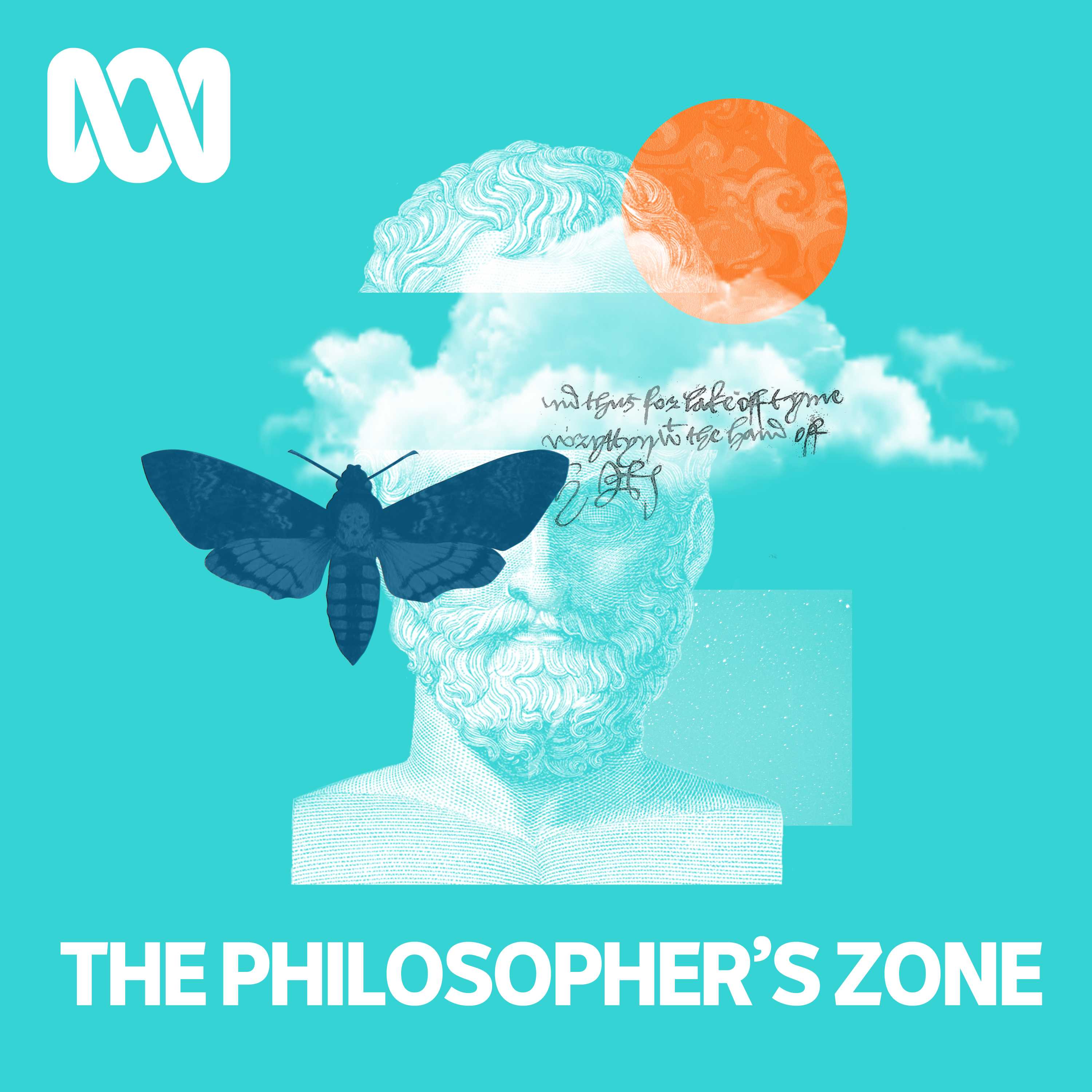

Philosopher's Zone
ABC
The simplest questions often have the most complex answers. The Philosopher's Zone is your guide through the strange thickets of logic, metaphysics and ethics.
Episodes
Mentioned books

Apr 16, 2025 • 31min
Style wars pt 2: Scandals and hoaxes
Joe Hughes, a senior lecturer at the University of Melbourne, and Elliot Patsura, a postdoctoral research fellow, dive into the world of academic hoaxes. They discuss the implications of publishing a paper filled with jargon intended as a satire, questioning the value placed on superficial trends in the humanities. The duo examines infamous scandals like the SoCal Affair, revealing how such events challenge scholarly integrity and spark vital discussions about the state of knowledge production and peer review in academia.

Apr 9, 2025 • 33min
Style wars pt 1: Postwar France and a new philosophical mode
Jessica Marion, a postdoctoral research fellow at the University of Melbourne, explores the philosophical renaissance in post-World War II France. She delves into how trauma fueled creative expression and reshaped philosophical thought. The emergence of dense and experimental writing styles sparked debates on accessibility and elitism in academia. Marion also examines Jacques Derrida's contributions, particularly the tension between clarity and complexity in philosophical discourse. This vibrant discussion reveals the intricate dance between language, thought, and modern intellectual traditions.

4 snips
Apr 1, 2025 • 52min
LIVE EVENT: What use is philosophy?
Sally Shrapnell, an Associate Professor in Physics, and Peter Harrison, a Research Fellow and Emeritus Professor in the Humanities, dive into the purpose of philosophy. They tackle the discipline's historical biases, such as sexism and colonialism, revealing how these injustices persist today. The discussion expands to the relationship between philosophy and science, questioning the nature of truth and the influence of narrative in moral understanding. They also confront the challenges posed by misinformation in the modern era, emphasizing philosophy’s role in navigating societal dilemmas.

Mar 27, 2025 • 37min
Queer theory and animal rights
Jessica Eisen, Deputy Director at La Trobe University and author of "Queer and Animal Provocations," explores the ties between queer liberation and animal rights. She discusses how queer identity struggles can perpetuate animal exploitation. The conversation dives into the complexities of homonormativity, critiquing the mainstream gay agenda's exclusions. Eisen also examines historical friendships between queer identities and animals, highlighting both marginalized groups' dehumanization. She emphasizes the emotional depth of activism, linking LGBTQ+ rights with compassion for all beings.

14 snips
Mar 18, 2025 • 34min
AI, reliability and trust
Sam Barron, an Associate Professor of Philosophy at the University of Melbourne, delves into the intricate relationship between AI and trust. He discusses the challenges of trusting black box AI systems, emphasizing the need for transparency. Barron explores how we should navigate our reliance on AI, pointing out that while these systems offer predictive power, they lack accountability. He warns against blindly anthropomorphizing AI, arguing that true trust hinges on understanding the intentions behind AI decisions, not just their outcomes.

Mar 13, 2025 • 37min
Innocence and "child rescue" in the colonial imagination
The forced removal of First Nations children from their families was active government policy in Australia between the 1910s and the 1970s, and still continues today under the banner of child protection. Today we're hearing that the story of the Stolen Generation has a historical parallel in the "child rescue" movement in 19th century Britain, when so-called "ragged children" were taken from their families - in many cases, abducted - and placed in institutions, to be trained and moulded into productive citizens.

40 snips
Mar 6, 2025 • 28min
What is a conspiracy theory?
We all feel we know what a conspiracy theory is: it's a belief held by other people about a conspiracy or conspiracies. Nobody likes being identified as a conspiracy theorist - including conspiracy theorists - and this makes life difficult for social scientists, psychologists and other researchers. When it comes to philosophy and the business of nailing down exactly what a conspiracy theory is, things get even muddier.

Feb 26, 2025 • 38min
Getting past post-truth
Our current "post-truth" environment means it's getting harder to trust what we see, hear and read - and this is a problem for all of us, but especially for educators and anyone in the business of teaching younger people about the world. This week we hear from a scholar who's looking to a modern philosophical tradition to come up with critical thinking strategies for students.

Feb 19, 2025 • 40min
Expanding our moral circle
Jeff Sebo, an Associate Professor at NYU specializing in environmental ethics and author of "The Moral Circle," explores the expansion of our moral considerations. He discusses the evolving understanding of non-human beings, including insects and artificial intelligence, in our ethical frameworks. The conversation delves into the complexities of moral standing and the shifting landscape of animal rights, highlighting the emotional ties to pets and the ethical dilemmas we face. Sebo calls for careful thought on how we manage our responsibilities to all sentient beings.

Feb 12, 2025 • 31min
Knowing what things are like
Yuri Kath, a Senior Lecturer in Philosophy at La Trobe University and author of "Knowing What It Is Like," dives into the complexities of experiential knowledge. He questions whether true understanding of feelings, like love or childbirth, requires firsthand experience. The discussion includes tiers of 'what it’s like' knowledge and the ethical nuances of representing life experiences in literature. Kath also examines how virtual reality can create empathy, while probing the limits of these simulators in conveying real emotions.


